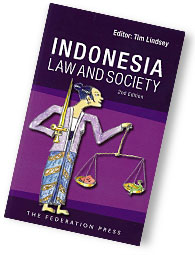- Regional Bar
- Townsville Courts of Law - Celebrating Fifty Years
- Reviews and the Arts
- Book - 'James'
- Interested in Becoming a Hearsay Reviewer?
- Book - 'Hooked: Inside the Murky World of Australia’s Gambling Industry'
- Book - 'Too Soon'
- Book - 'Madame Brussels: The Life and Times of Melbourne’s Most Notorious Woman'
- Book - 'Is A River Alive?'
- Book - Queen Esther
- Book - Confessions of a Minor Poet
- Book - 'Toxic: The Rotting Underbelly of the Tasmanian Salmon Industry'
- Book - 'A Short History of the Gaza Strip'
- Professional Conduct and Practice
- Artificial Intelligence (AI) and the Profession
- Victorian Lawyer with Alleged Tax Debt of $2.6 Million Fights to keep Practising Certificate
- Queensland Courts’ Use of Generative AI Guidelines for Judicial Officers
- Artificial Intelligence (AI) Guidance for Judicial Office Holders Issued in England and Wales
- Incompetence and Discourteous Emails Result in Disciplinary Sanction
- UK Magistrate Sanctioned in Relation to a Political Candidacy Leaflet
- Lawyer Dealt with for Failing to Provide PC Urine Samples
- Concerns Over Judges' Safety in England and Wales
- Northern Territory Lawyer's Name Struck from the Roll for Dishonesty in Admission Application
- Practice Direction 7 of 2025 - Non-Party Requests to Inspect or Copy Documents Filed in Civil Proceedings
- Advocacy
- Verdins’ Sentencing Submissions - Common Challenges
- How to Plead and Prove a Professional Negligence Claim
- War on Trusts: Fortifying the Defences
- Limitation Applied to Transfer of Vicarious Liability
- Artificial Intelligence (AI) and Intellectual Property (IP) fundamentals
- AI in Court Documents – QLD Guidance & the NSWDC’s Response in Gribble
- Ten Rules for Giving Good Evidence
- Electrical ‘Exposure’ not proved by Hearsay Statement Made 2 Days Earlier
- Practice Directions - Accuracy of References in Submissions
- Tracing Into Assets which have Increased in Value
- Inter Alia
- Congratulations Bar Practice Course 84
- Are you Cyber Ready?
- How to Spot a Deepfake Video
- Mashed Potatoes and Murder: a Deadly Tale from Queensland’s Shadowed Past
- Gold Coast Chambers
- How to have Healthier Arguments
- But the Judge Did Say That … ‘Pirate Code’
- Language - 'In Specie'
- Language - 'Mien'
- Holiday Mintie
- From the President
- From the President
- From the Editors
- From the Editors
- Articles
- A New Cause of Action for Serious Invasions of Privacy
- 10 Minutes with...The Honourable Justice Glenn Martin AM
- Thought for this Issue: ‘…[T]oday’s lawyers are tomorrow’s judges [so require]… independence of thought, strength of character and…moral courage’
- A Fortunate (Circuit) Life
- BAQ Guidelines for Cyber Risk Management and for the Use of AI in Legal Practice
- A New Home for Bail and Dangerous Prisoner Applications
- Forensic Evidence and the Courts
- Valuing Lawyers
- Australian Lawyers and Australian Democracy in 2025
- Between Tempests: Judgments at the Edge of the Anthropocene
- Regional Bar
- Bar on the Goldie
- Reviews and the Arts
- Art - Under a Modern Sun: Art in Queensland 1930s-1950s - QAGOMA
- Book - The Flower Bed
- Book - Vaccine Nation
- Book - Unsettled
- Book - The Power of Choice
- Book - The Best Australian Science Writing 2024
- Book - Would that be Funny?
- Travelogue - Annecy (French Alps)
- Book - Journey to Kars: A Modern Traveller in the Ottoman Lands
- Book - Mrs Death Misses Death
- Professional Conduct and Practice
- Cyber Security Critical for Small Business
- SA Barristers’ Chambers Listed on Ransomware Leak Site
- Should you Delete your Old Social and Email Accounts?
- Threats to Judges on the Rise
- Indemnity Costs Ordered in Matrimonial Proceedings Following Material Non-Disclosure
- Bipartisan Submissions in a Criminal Trial Infected with Hallucinating AI - Twice
- Solicitor to Pay Costs for Submissions Affected by the Use of AI
- Appellate Approval of Queensland Barrister being Refused Practising Certificate
- Use of AI in Litigation Carries Responsibilities
- Lawyers Ought be Cautious in Legal Social Media Commentary
- Advocacy
- Evidence as to 'Usual Practice'
- Subpoena Lay Witnesses!
- Knowledge, Belief or Intent: The Difficulties of Particularising a Fraud
- When is Conduct Unconscionable?
- Costs Order Against Non-Party Overturned
- Scope of Non-Party Disclosure: ‘Spear Fishing’ not ‘Drag Netting’!
- Variation of a Contract
- Copyright: Crown use Just Became a Little Wider
- Need for Comprehensive Affidavit in Setting Aside Corporations Act Statutory Demand
- Damages for Remedial Expenditure Actionable by Non-Owner Developer Against Negligent Designer
- Inter Alia
- How Resilient Are You? 4-Question Test and Proven Strategies
- The Independent Bar as a Feudal Guild
- Your Guide to Avoiding the 3pm Slump at Work
- Expressions of Interest to Write in 'Queensland Civil Practice'
- Fixed vs Variable Rate?
- Language - Dyed-in-the-wool
- Language - Formidable
- Language - Lays the Ghost
- Language - Scintilla
- Language - Zeitgeist
- From the President
- From the President
- From the Editors
- From the Editors
- Articles
- How Brawn v The King and MDP v The King Changed the Law on the Common Form Appeal Provisions
- 10 Minutes with…Simon Couper KC
- Thought for this Issue: The Performance Pressure of Being a Barrister…Look After Yourself in How You Manage that...Pressure
- Featured Artist Profile: William Robinson
- The Closing Address in a Jury Trial
- Obligations of New Barristers…and the Other Side of Life
- Swearing-In Ceremony for Justice Doyle and Justice Johnstone
- Hearsay Celebrates 100 Issues
- VALE: Stephen William Zillman 1953-2025
- The AML/CTF Legislation: Using Red Tape to Fight Crime
- Issue 100: June 2025
- Trial Advocacy: Planning and Environment Court
- FCAFC: How to Draw and Conduct an Appeal
- Federal Court - Revisiting the Requirements of Pleadings
- No Tortious Duty Owed by Defendant in Respect of 1960’s Report of Abuse of Another Child
- Proving an Oral Agreement
- When to Assess Damages for Breach of Contract
- Balancing Restraint and Client Choice: Injunctive Relief Refused in Perpetual v Maglis
- Entitlement of Trust Beneficiary to Inspect Trust Documents and Receive Trust Information
- Liability of International Air Carriers
- Significant Changes have been Recommended to Modernise Wills Law in England and Wales
- Issue 99: March 2025
- Fraud! What Does it Mean in Disability Insurance?
- Appeals: Interlocutory v Final Decisions and Jurisdictional Error
- Case Highlight: Health Ombudsman v du Toit [2024] QCA 235
- A Note on Disclaimers in Negligence Law
- Canadian Judges give Contract the Thumbs Up
- Successor Trustee Owes No Fiduciary Obligation to Former Trustee
- 'Courts … can only act on the law as it is, and have no right to … speculate upon alterations in the law that may be made …'
- Valuable Bailed Goods Not 'White Elephants' in Re-supply Settlement Deed
- No Past Consideration Because Loan Advance Part of a Single Transaction
- Utility of – and what Constitutes Detriment for – a Common Intention Constructive Trust
- Issue 98: December 2024
- Get BarBooks for Only $1 Until the End of 2024
- eBrief Ready
- Sherrin Partners
- NSW PD Prohibiting Gen AI Use in Evidence and Judgment Drafting
- Public and Briefing Profession Interest Knowing of Disciplinary Charge against Barrister
- The Barrister’s Role in Moving Uncontested Admissions to Legal Practice
- Imposter Syndrome
- The 'Moral Panic' Over Psychological Wellbeing in the Legal Profession - A Personal or Political Ethical Response?
- Magistrate who Provided Reference for Defendant given Formal Advice for Misconduct
- Drafting Witness Affidavits as to Contested Conversation Content
- Issue 97: September 2024
- Unlock Exclusive Discounts with BarBooks
- eBrief Ready
- LexisNexis
- ACL Unconscionability and Accessorial Liability
- Estoppel by Encouragement – Promise Certainty, Reliance, Detriment and Unconscionability
- The Fruits of an Unlawful Demand (Part 2)
- Non-Publication Orders in Abuse Matters
- The Courts and Arbitration
- More on Private Nuisance from the UK Supreme Court
- An Expert Witness’s Proper Approach in Testimony
- Issue 96: June 2024
- LexisNexis
- Forvis Mazars
- Legal Home Loans
- What’s My Loss? “True Value” under Australian Consumer Law
- US Senior Appellate Judge Opines Generative AI has a Role to Play in Argument and Adjudication
- Vulnerability and Uncertainty in Purely Economic Loss
- The Court’s Role in Supporting Commercial Arbitration and Giving Effect to Arbitration Clauses
- Precedent in English Law
- Federalism, the Courts and Class Actions
- The Role and Running of Commissions of Inquiry: Australian Academy of Law seminar
- Issue 95: March 2024
- Legal Home Loans
- Mazars
- Morgans Tynan Partners
- Noblesse of the Robe
- Citation of Authority - Supreme Court Practice Direction No 1 of 2024
- Lay Witness Evidence “Distorted and Manipulated” by Lawyer and Expert
- A Hitout as a British Barrister
- Lawyer Found to have Engaged in Professional Misconduct for Gross Discourtesy to Fellow Practitioner in Email Correspondence
- Don't Conduct Hearing if You Feel Unsafe, LCJ tells Judges
- Spanish Arbitrator Jailed in Relation to an International Arbitration
- Issue 94: Dec 2023
- Book - Root & Branch
- Book - First: Sandra Day O’Connor
- LexisNexis
- Sherrin Partners
- eBrief Ready
- Welcome to the Bar!
- Landmark Legislation Introduced to Criminalise Coercive Control
- Welcome to the Supreme Court Library's New Website
- Sunshine Coast Bar Conference 2023
- Trials much like ‘Cricket Matches’
- Issue 93: Sep 2023
- eBrief Ready
- Sherrin Partners
- LexisNexis
- Put Paper in the Past
- Bar Flies Scoop the QLS Netball Pool
- Gremlins, Borgs, and Judicial Impartiality in Multi-Member Courts
- The Legacy of Sir Harry Gibbs on the Jurisprudence of Purely Economic Loss
- Therapeutic Jurisprudence and Mediation: Partners in Dispute Resolution
- Qld Law Reform Commission – a New Look
- A Way to Win-Win Negotiation
- Issue 92: Jun 2023
- LexisNexis
- Mazars
- Morgans
- Some Important Changes in the New Property Law Bill
- Class Actions 101
- The QCA and the Law as to Overturning an Unreasonable Verdict
- Not Bound by the Rules of Evidence
- Family Law – Same but Different
- When Ministerial Decisions Must Be Made Personally
- Insolvency – ‘Peak Indebtedness’
- Issue 91: Mar 2023
- LexisNexis
- Morgans
- Mazars
- Winners are Grinners; Well Almost!
- Bar v UQ Students Netball Match – 5 March 2023
- Wigs and Gowns
- CIA 1944 Tips for Organisational Sabotage – Sound Familiar in Modern Mores?
- Family Court Judge Writes to Children Concerning Custody Decision – “I have told your parents to stop the crap”
- Magic Circle Firm Rolls Out 'Gamechanger' ChatGPT-Type Platform
- Privacy – Prospective Statutory Right of Action and Statutory Tort





 Tim Lindsey (who is photographed) is Professor of Law, ARC Federation Fellow, Director of the Asian Law Centre and Co-Director of the Centre for Islamic Law and Society, all at the University of Melbourne. (Details taken from the website of the Federation Press.)
Tim Lindsey (who is photographed) is Professor of Law, ARC Federation Fellow, Director of the Asian Law Centre and Co-Director of the Centre for Islamic Law and Society, all at the University of Melbourne. (Details taken from the website of the Federation Press.)